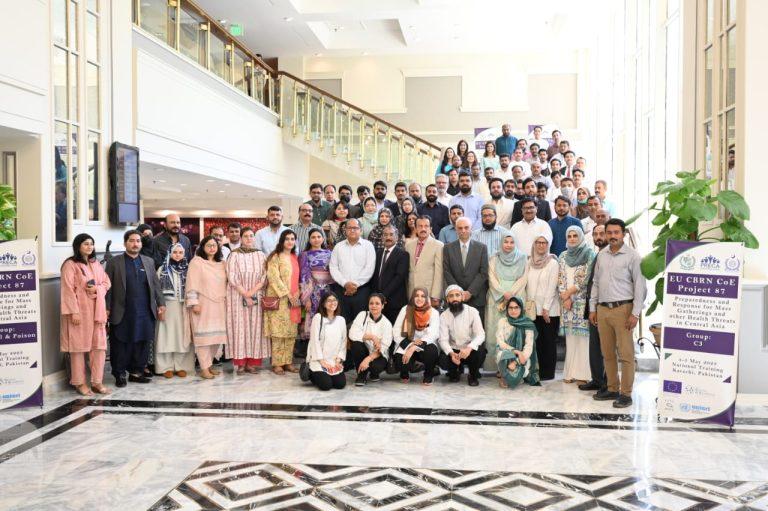
The National Institute of Health (NIH) has organized a two-day training workshop on the “Preparedness and Response for Mass Gathering and other Health Threats” in Karachi in collaboration with Provincial Health Department, Sindh.
The workshop aimed to enhance the public health preparedness of different sectors and their roles in public health emergency management. The workshop was inaugurated by the Director Health Services Karachi Sindh.
It was organized in collaboration with European Union (EU) Centers of Excellence Initiative and International Science and Technology Center. (ISTC) under EU CBRN CoE Project 87.
Over 100 experts from different government departments, including water and sanitation, food, chemical, hygiene and public health across all districts of Karachi, the most populous city of Pakistan, participated in the workshop.
The participants were of the view that the Public Private Partnership approach was adopted and key stakeholders from the hospitality industry were also included in this activity.
It added that the public health threats and emergencies like Mpox, COVID-19, Chemical events pose devastating impacts, not only on the lives and well-being of people, but also on travel, trade, national economies, and societies. The effects of public health emergencies can be mitigated if the preparedness and response plans are well established.
Subject matter experts trained by the European Union through the International Science and Technology Center, facilitated the workshop with practical analysis relevant to real life situations in Pakistan, and the event culminated in a tabletop exercise during which all participants combined their expertise and applied their skills to mitigate a real like situation.
This workshop followed the pattern of the first one conducted in Islamabad during 30-31 January 2023, which was conducted by NIH with the support of European Union Centers of Excellence Initiative and the International Science and Technology Center.
The event was highly appreciated by all the participants, especially by the hospital industry.